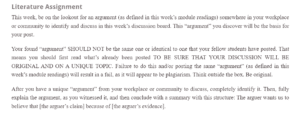Pessimist versus Optimist
Disagreements between people cause arguments. Even though they create an uncomfortable situation, they are unavoidable. Furthermore, all individuals have their own opinions, and arguments tend to occur when a dispute arises. Over the week, I witnessed an argument between optimists and pessimists on thoughts influencing outcomes and realities.
Arguments arise from differing emotional perspectives. The optimist, just like Spencer Holst’s fable “The Zebra Storyteller,” used her imagination to picture a prosperous future and conveyed it to her pessimistic friend, who did not share her excitement. The argument arose because the optimist talked about the great results of her driven energy for working out and her latest investment in a particular company. Simultaneously, the pessimist disagreed with her perspective of the outcomes, arguing that she would be disappointed in the results. This exposure crushed the optimist’s view, and she decided to alter the pessimist’s opinion based on her prior experience. The pessimist insisted that expecting the worst in situations is great when the results turn out great. Also, he argued that the optimist was living in a fairy tale bubble where everything was perfect. The optimist turned on the pessimist and told him that his pessimistic thoughts would only attract negative realities, leading to a “difficult” life full of hardships. At the end of the argument, both parties agreed to wait for the results of the optimist’s plans to determine who was right.
To conclude, the arguer wanted us to believe that expecting the best in every situation often attracts good things in our reality because things tend to go wrong when negative thoughts crowd our minds, but sometimes they do turn out great, which is good for us.
ORDER A PLAGIARISM-FREE PAPER HERE
We’ll write everything from scratch
Question
Literature Assignment
This week, be on the lookout for an argument (as defined in this week’s module readings) somewhere in your workplace or community to identify and discuss in this week’s discussion board. This “argument” you discover will be the basis for your post.

Pessimist versus Optimist
Your found “argument” SHOULD NOT be the same one or identical to one that your fellow students have posted. That means you should first read what’s already been posted TO BE SURE THAT YOUR DISCUSSION WILL BE ORIGINAL AND ON A UNIQUE TOPIC. Failure to do this and/or posting the same “argument” (as defined in this week’s module readings) will result in a fail, as it will appear to be plagiarism. Think outside the box. Be original.
After you have a unique “argument” from your workplace or community to discuss, completely identify it. Then, fully explain the argument, as you witnessed it, and then conclude with a summary with this structure: The arguer wants us to believe that [the arguer’s claim] because of [the arguer’s evidence].
The length of this assignment is one full paragraph, minimum. Be sure to study the S.E.E.I.T. model of paragraph building to understand what your instructor’s expectations are on the minimum number of complete sentences (and what kind/purpose). Then, be sure to use the S.E.E.-I.T. model of paragraph-building to construct the paragraph(s) in your response.
Topic : Pessimist versus Optimist

